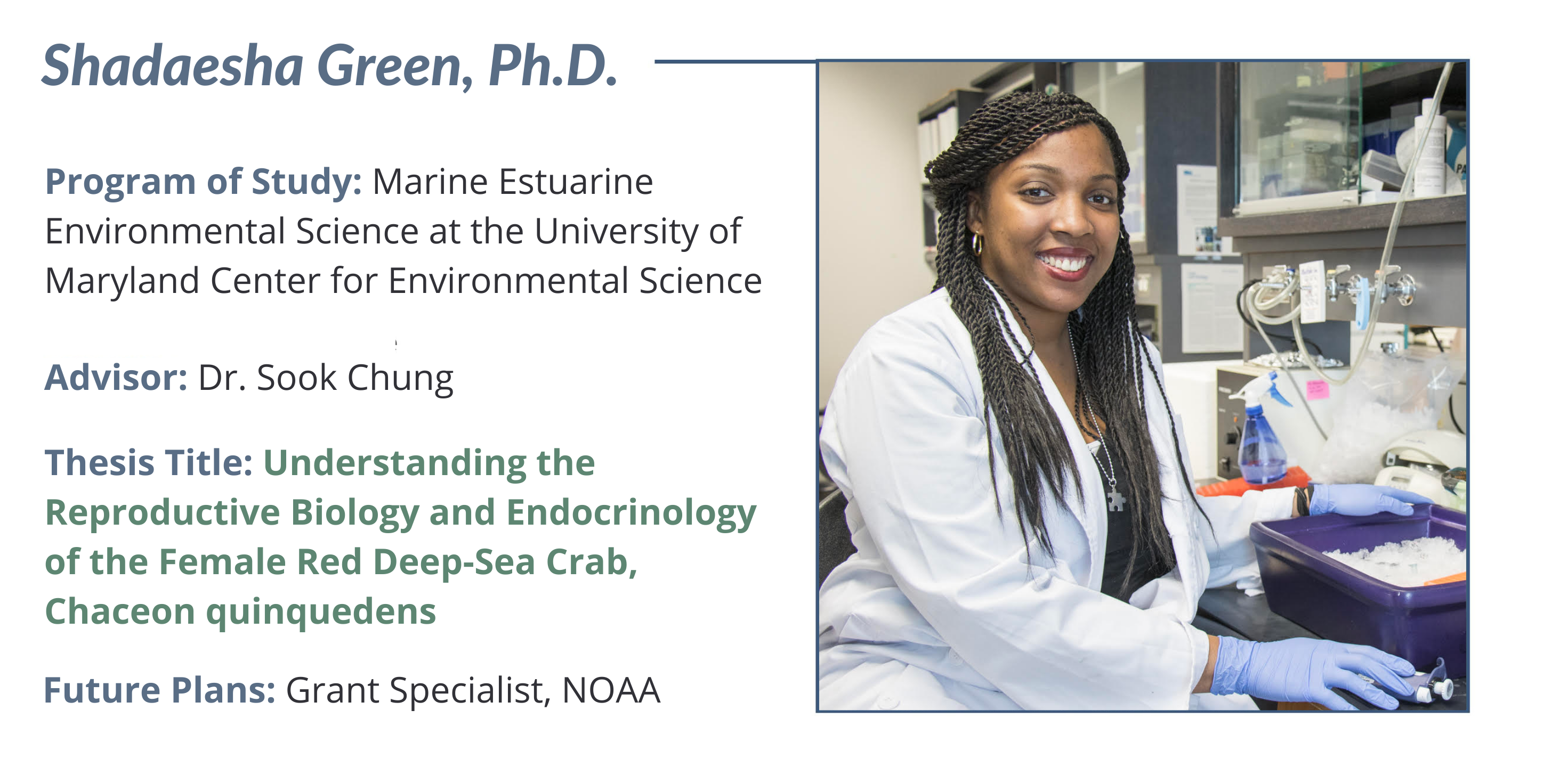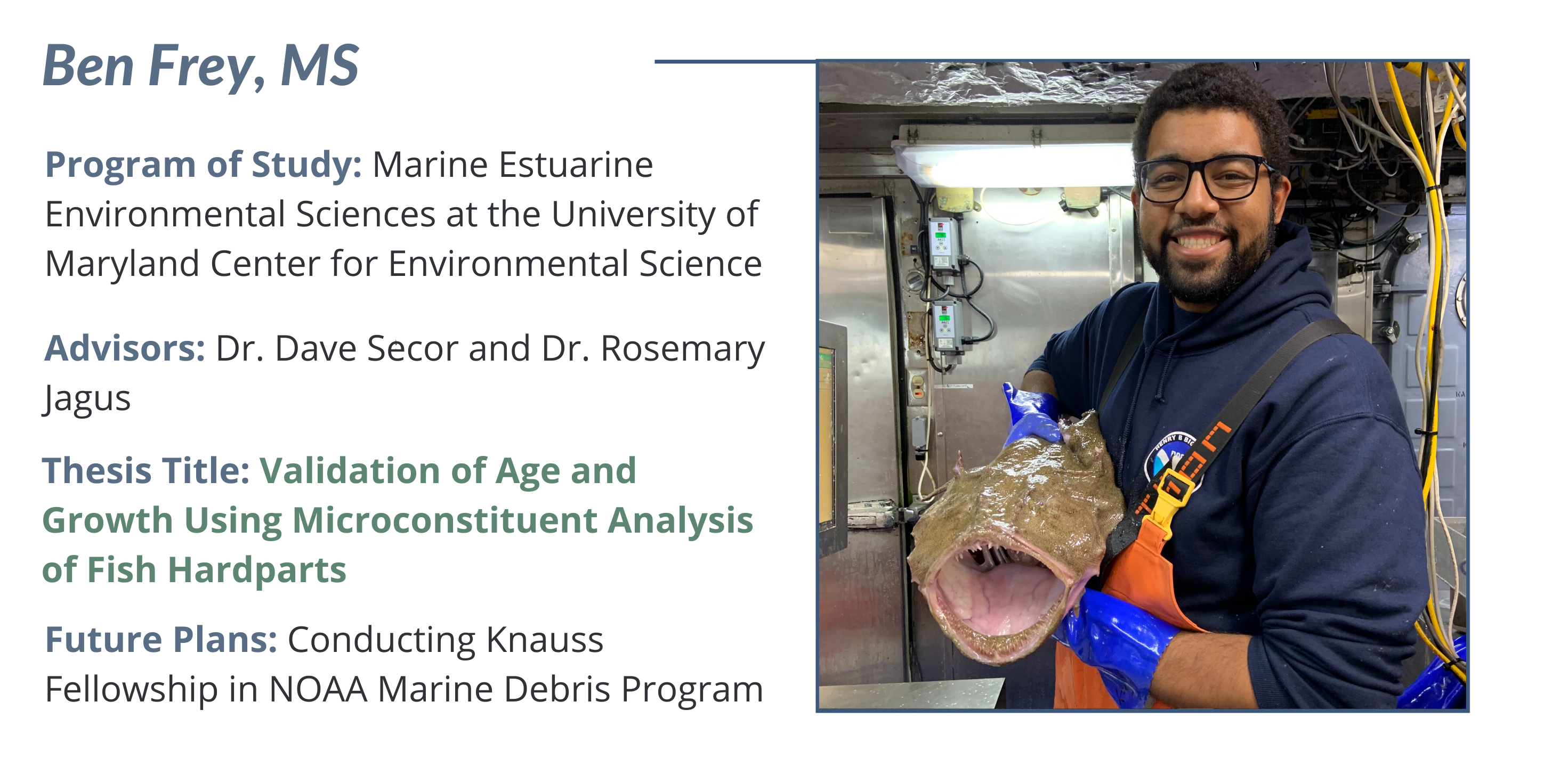IMET Recent Graduates
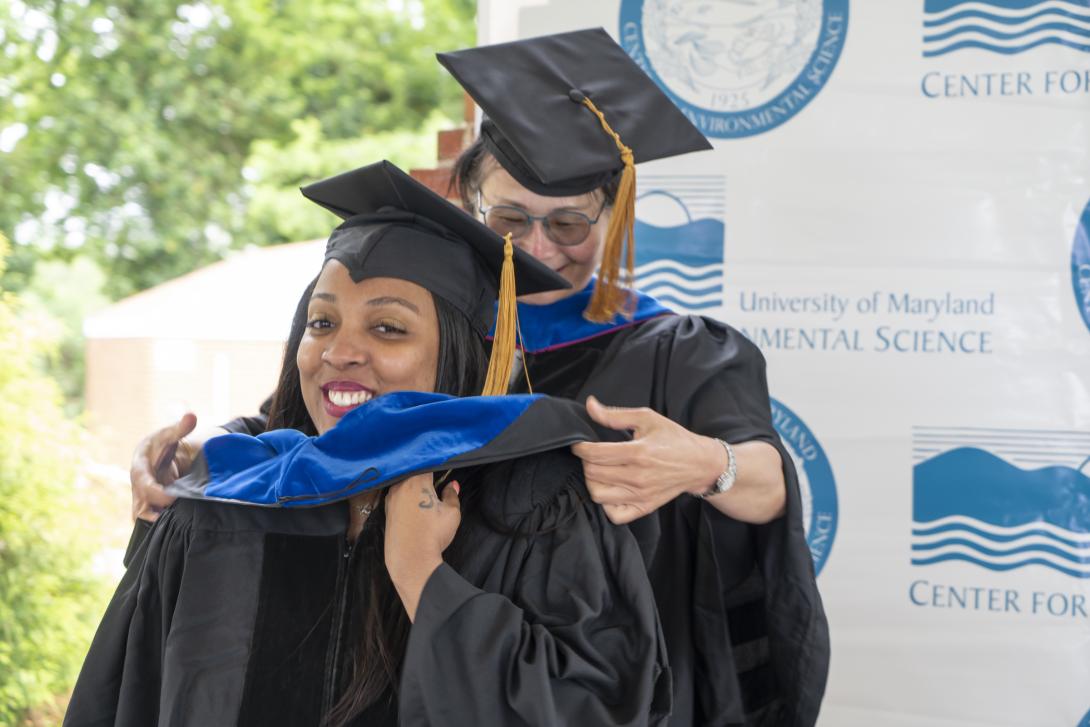
With graduation season upon us, it's time to recognize the incredible IMET students who have successfully defended their theses/dissertations in the last couple of months. Graduate students at IMET are working towards either a masters or a doctoral degree. They are affiliated with one of our partner institutions- UMBC, UMB, or UMCES and work in their IMET advisor’s laboratory in our state-of-the-art facility here at IMET.
It takes a multitude of steps to complete a graduate degree. While students start their programs with coursework, it doesn't end there... In addition to completing coursework through their universities, students develop a research proposal, defend the proposal, begin their research, research some more… and some more, start writing their thesis/dissertation, write A LOT more, then (no, not done yet) they must present and defend all of their research to a graduate faculty committee. After presenting their work to the committee, the students are questioned in detail about their research. Once satisfied, the committee will approve the students work…NOW they are done. We are so incredibly proud of the students who have completed this rigorous process at IMET so we decided to show them off!
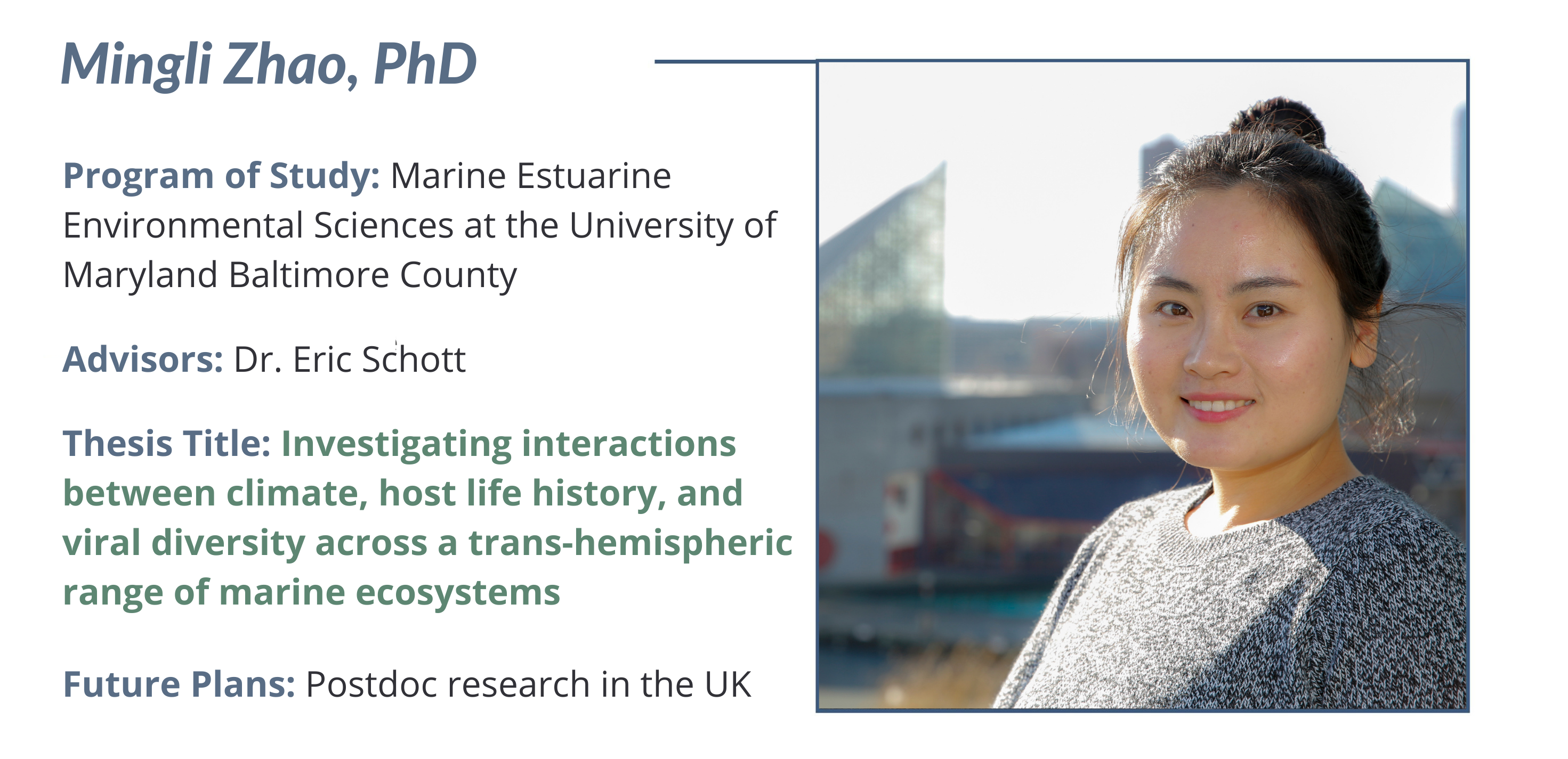
Dr. Mingli Zhao
Mingli's PhD research focused on viral diversity across a range of marine ecosystems. Specifically, Mingli used the widespread Atlantic blue crab to study the interaction between climate, life history, and viral diversity in marine systems. What advice does Mingli have for incoming graduate students?
"1. Connect with other graduate students in the MEES program. Graduate students in the MEES program are enrolled in different universities, so reach out to the graduate students who have gone through the same processes in the program for advice and help. 2. Check the graduate degree program requirements earlier, e.g., what qualifications are needed for your committee members and the timeline for committee meetings and exams. Check this information on the graduate school website ahead of time."
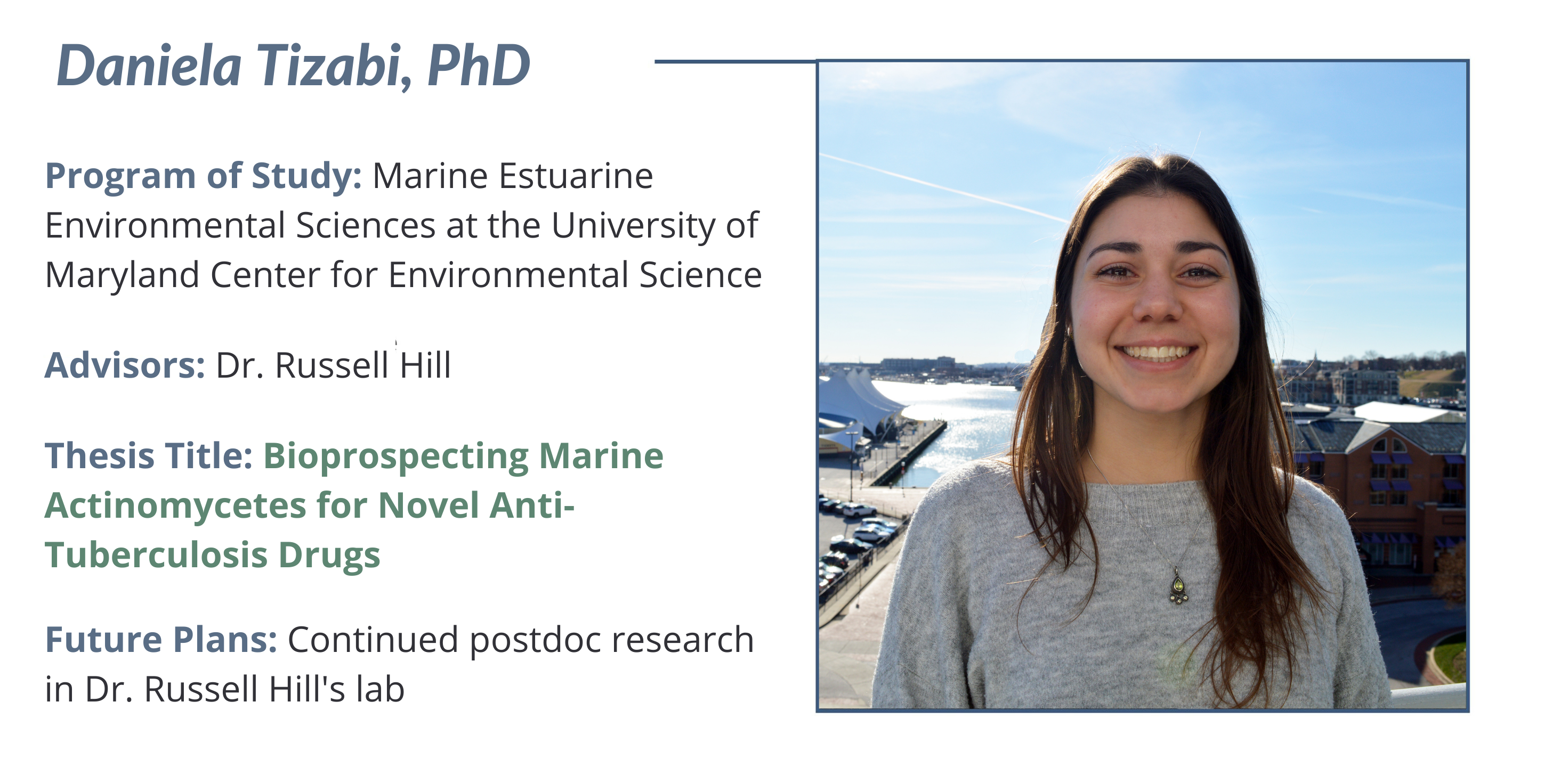
Dr. Daniela Tizabi
Daniela's Ph.D. research focused on the search for novel anti-tuberculosis drugs. Specifically, Daniela explored the possibility of using bacteria found in the Caribbean giant barrel sponge to inhibit the growth of Mycobacterium tuberculosis. What advice does Daniela have for incoming graduate students?
"Don't be afraid to ask questions! Research is a highly collaborative effort and you won't be able to figure out everything on your own. There's always someone you can talk to if you need help with a new protocol or just have research questions in general, and everyone at IMET is very approachable and willing to help!"
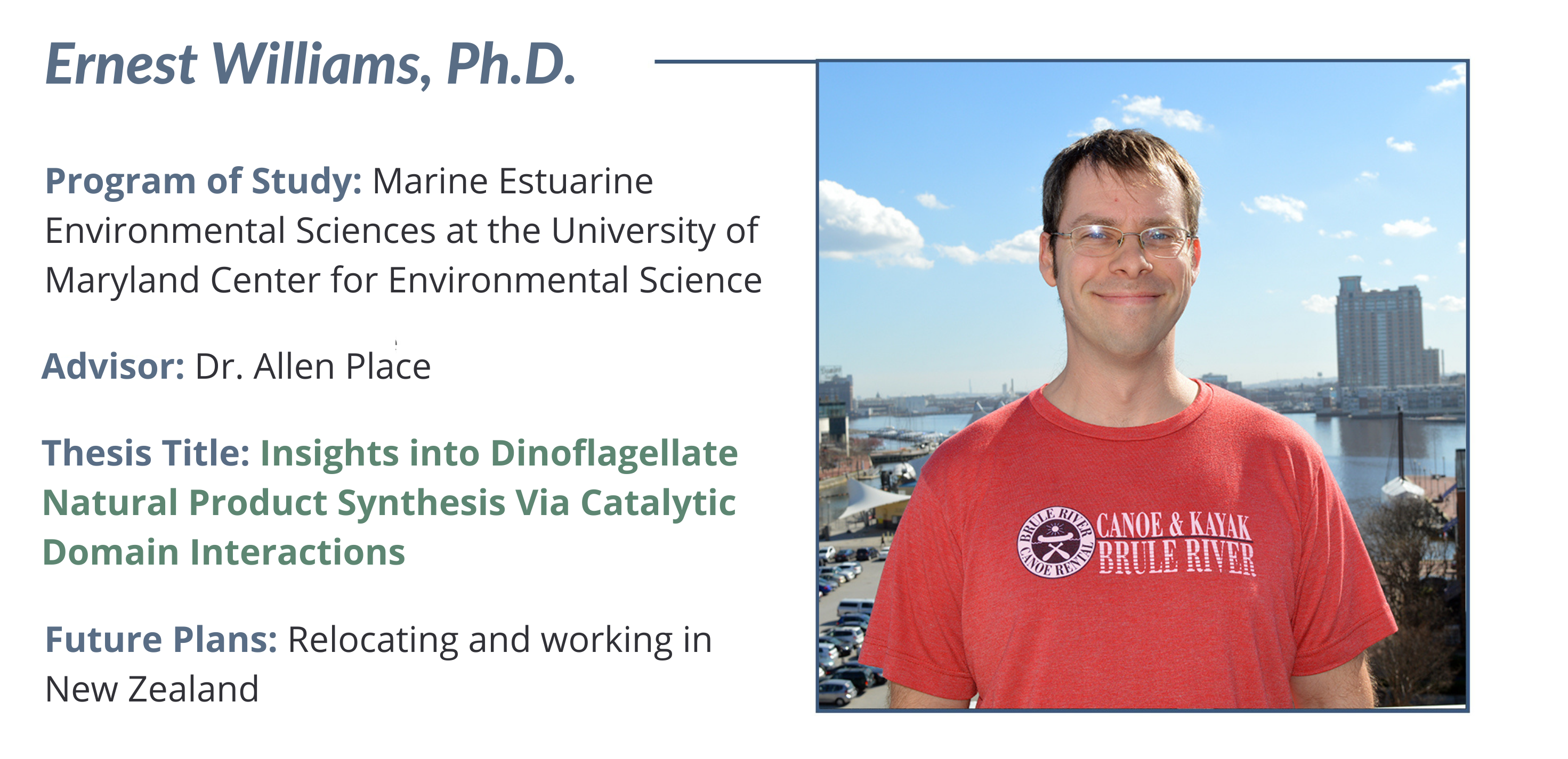
Dr. Ernest Williams
Ernest’s PhD research focused on marine microorganisms and the substances they produce. Specifically, he studied dinoflagellate natural product synthesis. However, we must add that Ernest was not just an IMET student but also an IMET employee. Ernest has been with IMET for over 15 years! What experience stood out to Ernest the most during his time at IMET?
“I was surprised by the amount of community shared amongst the graduate students. Standing in line I was surprised by how many people I had taken classes with, done projects with, and talked about research with; even people that I had attended the first day of student orientation with.”
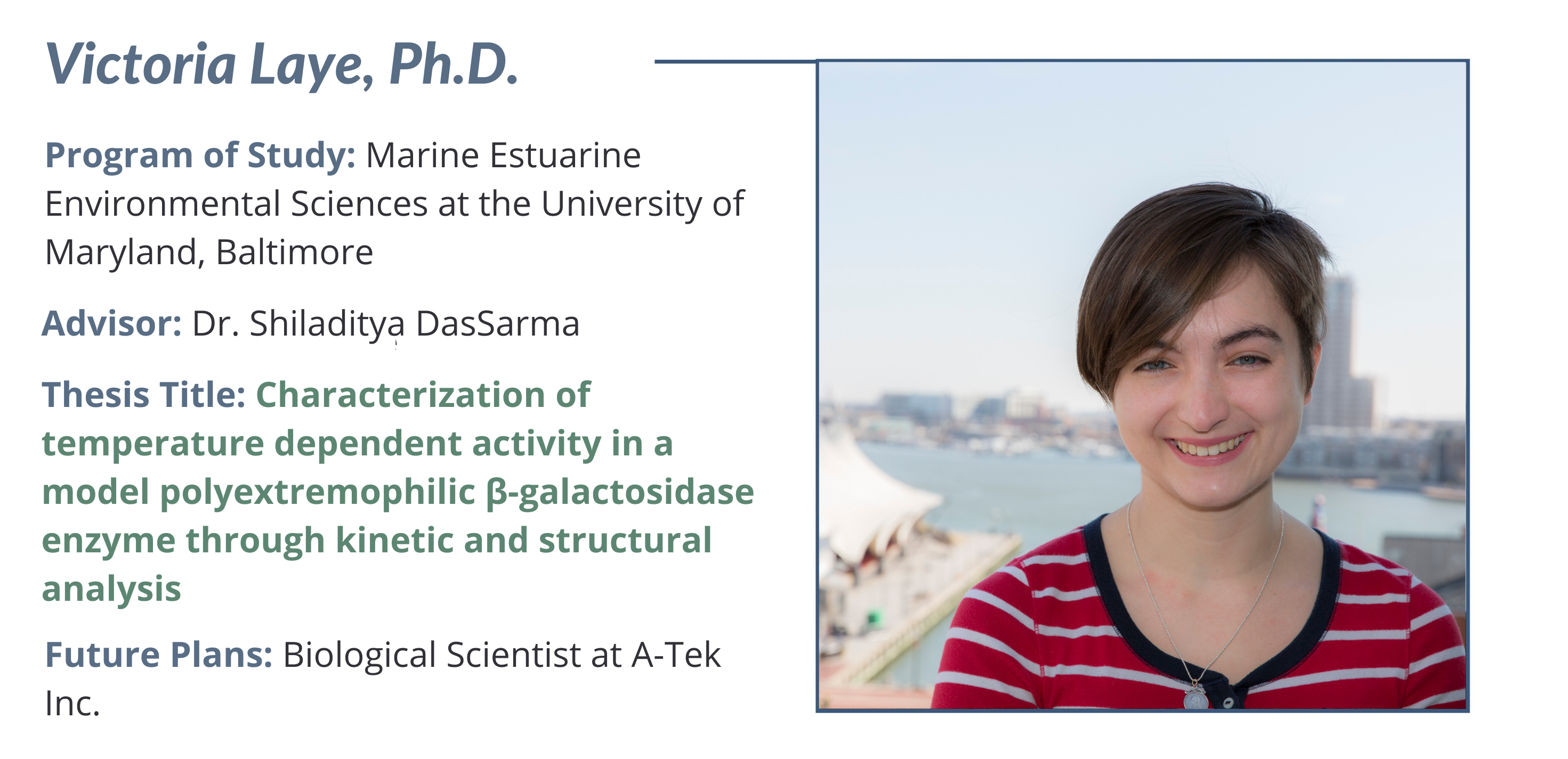
Dr. Victoria Laye
Victoria’s PhD research focused on microorganisms that live and thrive in subzero temperatures and high salt environments. Victoria studied how the proteins of this cold-adapted microbe are able to function at such low temperatures. What advice does she have for incoming graduate students?
“Take advantage of all the opportunities offered. Go to every conference you can and take every invitation to present your work. It's scary but the more you do it, the easier it gets and the more confidence you will gain in your work and conclusions.”

